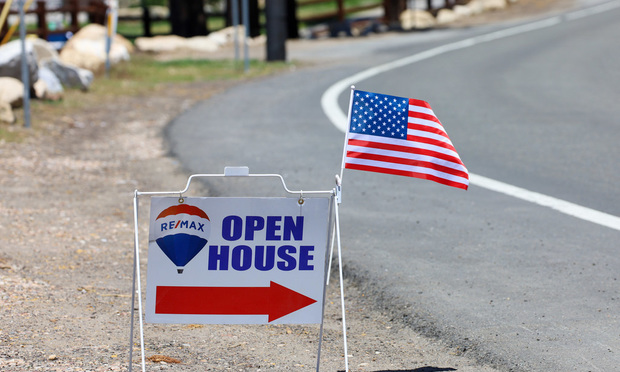Independent directors serving on the boards of publicly owned, privately held and not-for-profit organizations all face numerous liability exposures, any of which can threaten their personal assets, said a D&O expert.
In the post-Enron era, independent directors are given a variety of responsibilities, including strategic planning, monitoring the actions of management to prevent abuses of power and providing a more balanced perspective on important issues.
 Because of the Sarbanes-Oxley Act of 2002 and a stream of increasingly expensive shareholder claims against directors and officers, the financial and reputational risks to independent directors have never been greater. As a result, those considering service as independent directors are insisting on information concerning preventive measures, defensive tactics and financial protection.
Because of the Sarbanes-Oxley Act of 2002 and a stream of increasingly expensive shareholder claims against directors and officers, the financial and reputational risks to independent directors have never been greater. As a result, those considering service as independent directors are insisting on information concerning preventive measures, defensive tactics and financial protection.
“We're in an interesting place in the marketplace,” said Evan J. Rosenberg, senior vice president, Chubb & Son, and global specialty lines manager, Chubb Specialty Insurance in Warren, N.J.
“What's been getting a lot of press is the financial difficulties of some of the big players,” he said. “So I think risk managers and boards are probably taking a much harder look at the counterparty risk. They're looking at the financial strength of their carriers as never before.”
He said organizations looking to protect independent directors are looking at the amount of limits they buy. In the last five or six years, he said the trend has been to buy “some traditional D&O coverage and some excess A-side only. The next trend we're starting to see is they're starting to buy independent directorship liability coverage or coverage for the outsiders,” although this still is not widely purchased, he said.
Where are boards vulnerable right now?
“The issues most companies are facing have to do with financial distress. You almost can't open the newspapers everyday without seeing a large company filing Chapter 11. You're seeing an ongoing trend of financial difficulty.”
He noted “an interesting phenomenon” that follows these circumstances related to the obligations of board members.
“Traditionally with a publicly traded company, the boards owe their loyalty to the shareholders and have to act in the best interest of the owners,” he said. “What happens when you get into this zone of insolvency [is that] your loyalty switches from the shareholders to creditors” as a board member, he said.
In addition, directors of financially struggling firms face a different set of risks, when obligations to creditors may override their duties of loyalty to owners.
“It's not like there's a big sign in the road, but I think that's a very tricky point in a company's evolution,” he noted.
At this juncture, he said, organizations must determine when they are really in trouble. They now must protect the company's assets for the benefit of creditors, “which is different than what they've been doing all along.”
“That's where I think boards have really got to be focused,” he added, noting that they have to “stay on top” of not only their company's operations, but what's going on “up and down the food chain.”
He said boards need to look at competitors of the company, suppliers and creditors. “So their job has gotten so much more complicated, because all the people in their supply chain and their financial are struggling.”
All of this has created “a lot of anxiety and a lot of demands. I'd say their board meetings are probably a lot longer, tougher than they were two years ago, because the financial crisis has spread so widely.”
Right now, he said, board vulnerability “is coming to the fore. When times are good, the stock market is increasing at a slow, steady pace.” People aren't as concerned, “as long as everybody's making money,” he said, adding that upon entering “a volatile stock market, all of a sudden, all the things you weren't watching as diligently start to show up.”
In addition, “if you start getting into that change of loyalty” issue, he said, “it's very tricky.”
To help directors deal with the many issues they are facing, he said Chubb has updated its handbook for independent directors, titled “Loss Prevention Guidelines For Independent Directors.”
Chubb publishes a variety of guides to help instill “a sense of risk management and good behavior,” he said. “You can be the best company in the world, do everything right, [but] it doesn't mean you're not going to get sued. You want to have the procedures and the documentation, so you have a good defense.”
He emphasized that being a good, well- managed, well-run company isn't always enough. “But if you are doing the right things and focusing on director education, board attendance, getting outside experts and all the things we talk about, it does make it easier to defend the case and to make sure you can resolve the litigation with little or no cost, other than defense costs,” he said.
Ultimately, he added, “it's good for us as an insurer and it's good for our customers to try to find ways to mitigate damages.”
Want to continue reading?
Become a Free PropertyCasualty360 Digital Reader
Your access to unlimited PropertyCasualty360 content isn’t changing.
Once you are an ALM digital member, you’ll receive:
- Breaking insurance news and analysis, on-site and via our newsletters and custom alerts
- Weekly Insurance Speak podcast featuring exclusive interviews with industry leaders
- Educational webcasts, white papers, and ebooks from industry thought leaders
- Critical converage of the employee benefits and financial advisory markets on our other ALM sites, BenefitsPRO and ThinkAdvisor
Already have an account? Sign In Now
© 2024 ALM Global, LLC, All Rights Reserved. Request academic re-use from www.copyright.com. All other uses, submit a request to [email protected]. For more information visit Asset & Logo Licensing.








